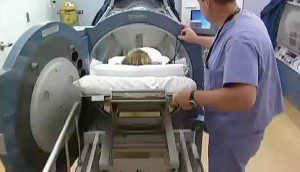By Maria E. Alvarez-Krisan, MD, FAPWCA –
 In the United States, the incidence of diabetes in the population is rapidly increasing. There are several factors which can explain this, but the main one is an epidemic of obesity, which frequently leads to type 2 diabetes. Other conditions that can lead to diabetes are sedentary life and medications such as steroids, which are used for inflammatory conditions and COPD. A family history of diabetes is also frequently present with diabetics.
In the United States, the incidence of diabetes in the population is rapidly increasing. There are several factors which can explain this, but the main one is an epidemic of obesity, which frequently leads to type 2 diabetes. Other conditions that can lead to diabetes are sedentary life and medications such as steroids, which are used for inflammatory conditions and COPD. A family history of diabetes is also frequently present with diabetics.
Diabetes is a disease that impairs the metabolism of glucose in our bodies. Glucose is the essential source of energy for our bodies. With this defective metabolism, gradual but grave consequences occur. Multiple organs are affected: nerve damage, circulation problems and cells that are sluggish to heal after injury. Thus diabetes provides the perfect scenario for a problem wound.
A diabetic patient may suffer from neuropathy, thus have poor or no sensation. He/she may step on a small object without being aware of it, and develop a wound. The patient may also have poor circulation, which will not allow blood flow for healing. Moreover, patients with elevated blood sugar will have a poor cell response for healing at the wound site. This all leads to a chronic wound.
Understanding the medical condition that has caused this chronic wound helps us to design a plan of therapy tailored for each patient. Diabetics need to be closely monitored and controlled. We do thorough evaluations to determine any underlying medical condition that needs to be corrected, including anemia, malnutrition, arterial circulation blockages, venous hypertension, and infections.
Our center uses evidence based methods for wound healing, including physician weekly visits with debridement of chronic wounds, which have been shown to accelerate the healing process. During their visits patients receive education and wounds are treated with appropriate dressings and bandages. Appropriate referrals will take place such as for vascular procedures.
In some instances advanced therapies for more complex problems such as the use of negative pressure devices and biologic cell therapy is required. The Wound Care Center at Lehigh Regional offers hyperbaric oxygen treatments for a variety of serious medical problems which include complicated diabetic foot infections, chronic refractory osteomyelitis and radiation injury to soft tissues, most commonly bladder and rectal. A series of hyperbaric oxygen treatments is required to achieve the desired outcome.
Maria E. Alvarez-Krisan MD, FAPWCA
Physician Certified in Wound Care-CMET, Fellow of American Professional Wound Care Association, and Diplomat American Board of Internal Medicine, Infectious Disease.
The Wound Care Center
239-368-4561










